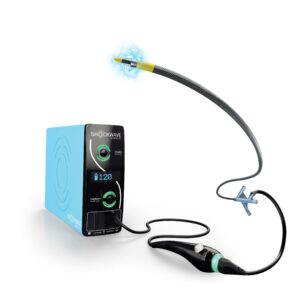
Shockwave Medical, part of Johnson & Johnson MedTech, has announced the first clinical outcomes associated with the Shockwave Javelin peripheral intravascular lithotripsy (IVL) catheter, a novel, non-balloon-based lithotripsy platform designed to modify calcium and cross extremely narrowed vessels in patients with peripheral arterial disease (PAD).
A press release notes that the 30-day results met both prespecified performance goals while showing a similar safety and effectiveness profile to balloon-based Shockwave IVL catheters. The results, which helped support US Food and Drug Administration (FDA) clearance of the technology last month, were presented as a late breaker at VIVA 2024 (3–6 November, Las Vegas, USA).
“The outcomes were exactly what we have come to expect from IVL studies—a strong safety profile with the low final residual stenosis that physicians would hope to achieve,” said JD Corl (The Christ Hospital, Cincinnati, USA), principal investigator of the FORWARD PAD study. “These initial data are promising and pave the way for a new approach to the application of Shockwave IVL in our peripheral practices. With technologies now suited to safely address both crossable and uncrossable lesions, IVL has a unique opportunity to play an increasingly important role in optimising outcomes for a wider set of patients with PAD.”
Corl reported at VIVA that the Shockwave Javelin peripheral IVL catheter met both prespecified safety and effectiveness endpoints, with a major adverse event rate of 1.1% at 30 days, and a technical acute procedural success rate of 99%. Additionally, at final angiography, angiographic complications were restricted to a single case of dissection with no reported perforations, abrupt vessel closure, distal embolisation or no-reflow.
The feasibility and investigational device exemption (IDE) studies of the Shockwave Javelin IVL catheter, MINI S and FORWARD PAD, respectively, were prospective, multicentre, single-arm, angiographic core-lab adjudicated studies with similar inclusion and exclusion criteria. The studies enrolled 90 patients with 103 heavily calcified, stenotic peripheral arterial lesions. The average lesion length was 77mm, and just under half of the target lesions were located below the knee, and over a third were chronic total occlusions.
“Recognising the risks that patients with difficult-to-cross lesions are exposed to with other treatment modalities, we’re extremely optimistic about the role that Shockwave Javelin could play in offering an effective alternative crossing and treatment tool with a strong safety profile,” said Nick West, chief medical officer at Shockwave Medical. “We look forward to learning more about the performance of the Shockwave Javelin IVL catheter as we add to the ongoing trial follow-up data with a limited market release of the device in the coming months.”











